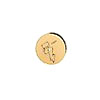- Administrator
- Albums and Singles
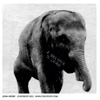 Dekorder 003 comes from John Hegre, a mainstay in both the pop andexperimental scenes in Norway as a member of established pop groupKaptein Kaliber and one half of the amazing electro-acoustic improv duoJazzkammer. The first full release under his own name, "A Nice Place ToLeave" is understandably more in line with his work with Jazzkammer, a3" disc consisting of three improv pieces produced with primitiveelectronics, guitar, computer, and what sound like obscured fieldrecordings. The songs are sparser than most Jazzkammer, but they avoida meditative end as all three seem to hinge on the element of surprisewith brutal, physical sounds consistently puncturing the atmosphericpassages. The first track builds on a looped guitar drone sounding likea gigantic bell pounded at low volume. To this repetitive sound, Hegreadds bits of static and synthetic sound, threatening a kind of rhythmicprogression, though the track never picks up, ending instead withpremature insistence as the electronic hums and pulses grow louder andmore prominent before throwing themselves into concentrated blasts ofnoise, terminating seconds before speakers are blown. The second trackis drone-heavy and uneventful until nuanced guitar noise, fallingthings, and what sound like birdcalls made by a modem begin to sectionoff the cold mass of sound, easing it into a crisp, grinding stop. Theclosing track picks up the looping guitar from the first, making clearthat A Nice Placeis really one long piece, bookended by these drones which could beeasily extended and remain interesting. Hegre keeps the noise largelyabsent from this final section as he does (relatively) for most of thedisc, making it less memorable than most of his other works, but noless captivating. His grasp on timing and successful juxtaposition isas apparent as ever, and I can only hope Dekorder has a full-length instore from this always-interesting artist.
Dekorder 003 comes from John Hegre, a mainstay in both the pop andexperimental scenes in Norway as a member of established pop groupKaptein Kaliber and one half of the amazing electro-acoustic improv duoJazzkammer. The first full release under his own name, "A Nice Place ToLeave" is understandably more in line with his work with Jazzkammer, a3" disc consisting of three improv pieces produced with primitiveelectronics, guitar, computer, and what sound like obscured fieldrecordings. The songs are sparser than most Jazzkammer, but they avoida meditative end as all three seem to hinge on the element of surprisewith brutal, physical sounds consistently puncturing the atmosphericpassages. The first track builds on a looped guitar drone sounding likea gigantic bell pounded at low volume. To this repetitive sound, Hegreadds bits of static and synthetic sound, threatening a kind of rhythmicprogression, though the track never picks up, ending instead withpremature insistence as the electronic hums and pulses grow louder andmore prominent before throwing themselves into concentrated blasts ofnoise, terminating seconds before speakers are blown. The second trackis drone-heavy and uneventful until nuanced guitar noise, fallingthings, and what sound like birdcalls made by a modem begin to sectionoff the cold mass of sound, easing it into a crisp, grinding stop. Theclosing track picks up the looping guitar from the first, making clearthat A Nice Placeis really one long piece, bookended by these drones which could beeasily extended and remain interesting. Hegre keeps the noise largelyabsent from this final section as he does (relatively) for most of thedisc, making it less memorable than most of his other works, but noless captivating. His grasp on timing and successful juxtaposition isas apparent as ever, and I can only hope Dekorder has a full-length instore from this always-interesting artist. samples:
Read More
- Administrator
- Albums and Singles
 Resina is the cooperative effort of Retina.it and Marco Messina, twowell-known electronic-based entities who experiment with a multitude ofstyles and themes in achieving their unique brands of glitch music. AsResina, they manage structures that may be complicated and not whollyelectronic — as they pass all their scrambings through analog equipmentduring recording/assembly — but they are ultimately conventional andvaguely uninteresting. Not to belittle the effort or the final producttoo much, but these songs work from the same canvas and paints with nottoo much variety, which makes for a static listening experience thatcould be better spent on more challenging fare. If there are differentthemes to these songs, I missed them, as they all sound remarkablysimilar. It seems like too many electronic artists concentrate on onlythe aesthetic of the contrivance instead of on melody and the songitself. Resina do some things extremely well: beat structure and fulluse of all frequencies; layered sound effects and the odd sample thrownin; working from one point and building to another in a predictable butstill non-jarring way. All things considered, though, once you've heardone track you've heard them all. Similar computerized beats continuethroughout the album, almost to the point where on the first listen Icould predict where the beat/song would go next, like a clarivoyantconductor of a synthetic orchestra. There's a wealth of experience withResina, that much is clear, and having never heard the personnelinvolved I can't relate this to their other works. But I think at thisstage they'd have learned there's more to electronic music than this.
Resina is the cooperative effort of Retina.it and Marco Messina, twowell-known electronic-based entities who experiment with a multitude ofstyles and themes in achieving their unique brands of glitch music. AsResina, they manage structures that may be complicated and not whollyelectronic — as they pass all their scrambings through analog equipmentduring recording/assembly — but they are ultimately conventional andvaguely uninteresting. Not to belittle the effort or the final producttoo much, but these songs work from the same canvas and paints with nottoo much variety, which makes for a static listening experience thatcould be better spent on more challenging fare. If there are differentthemes to these songs, I missed them, as they all sound remarkablysimilar. It seems like too many electronic artists concentrate on onlythe aesthetic of the contrivance instead of on melody and the songitself. Resina do some things extremely well: beat structure and fulluse of all frequencies; layered sound effects and the odd sample thrownin; working from one point and building to another in a predictable butstill non-jarring way. All things considered, though, once you've heardone track you've heard them all. Similar computerized beats continuethroughout the album, almost to the point where on the first listen Icould predict where the beat/song would go next, like a clarivoyantconductor of a synthetic orchestra. There's a wealth of experience withResina, that much is clear, and having never heard the personnelinvolved I can't relate this to their other works. But I think at thisstage they'd have learned there's more to electronic music than this.samples:
Read More
- Administrator
- Albums and Singles
 My initial reaction upon learning of the "Garden" CD was that the twocomposers are an unlikely pairing. Menche is known for his malevolent,very physical noise. Mizutani, who came to many listeners' attention asan original member of Merzbow, has focused on documentary recordings ofbirds and natural environments in recent years. Even stranger is theirdecision to divide the tonal specturm in half for their album together,with Menche producing only the low sounds and Mizutani the high ones.What on earth could this be? To be honest, after repeated listens, I'mstill unsure. The music is one hour-long piece, with the divisionbetween the artists' contributions quite pronounced throughout. I foundthis distracting, as I attempted to resolve in my mind the deepsub-bass rumble (from Menche) and the twittering birds and insects(Mizutani), which certainly seems to have been produced in isolation ofone another and simply grafted together. Not that some lovely momentsdon't occour; the initial eleven minutes are riveting, the oddjuxtaposition of elements creating a tension that just doesn't sustainitself for the hour. I was never able to forget the conceptual conceitand hear "Garden" as a single piece of music. Perhaps this was anintentional decision by the artists, but it does not work for me.
My initial reaction upon learning of the "Garden" CD was that the twocomposers are an unlikely pairing. Menche is known for his malevolent,very physical noise. Mizutani, who came to many listeners' attention asan original member of Merzbow, has focused on documentary recordings ofbirds and natural environments in recent years. Even stranger is theirdecision to divide the tonal specturm in half for their album together,with Menche producing only the low sounds and Mizutani the high ones.What on earth could this be? To be honest, after repeated listens, I'mstill unsure. The music is one hour-long piece, with the divisionbetween the artists' contributions quite pronounced throughout. I foundthis distracting, as I attempted to resolve in my mind the deepsub-bass rumble (from Menche) and the twittering birds and insects(Mizutani), which certainly seems to have been produced in isolation ofone another and simply grafted together. Not that some lovely momentsdon't occour; the initial eleven minutes are riveting, the oddjuxtaposition of elements creating a tension that just doesn't sustainitself for the hour. I was never able to forget the conceptual conceitand hear "Garden" as a single piece of music. Perhaps this was anintentional decision by the artists, but it does not work for me. samples:
Read More
- Administrator
- Albums and Singles
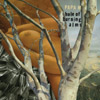 Drew Daniel of Matmos once said something to the effect of Dave Pajobeing one of those people whose musical and artistic talents are justbeyond comprehension, to the point that can make a number of peoplejealous. Pajo's guitar talents can be heard from releases stretchingback to the late 1980s with Slint (even earlier with more obscurebands' records that can probably not be located anywhere), continuingon into the 1990s with King Kong, Palace, Tortoise, and appearanceswith Stereolab, Royal Trux, and For Carnation live. In 1995, hereleased something as M, then M is the Thirteenth Letter, then AerialM, before settling on Papa M. It's important to note that recordingscollected here does not compile -the definitive singles collection- (itwould span more than three discs with today's technology), however, itdoes form a strong album of coherent material that can be listened topretty much within the catalogue of his first three releases throughDrag City: Aerial M, Post Global Music, and Live from a Shark Cage.In addition, it does sort of close the book on the musical style whichhas come to pass for him: the music is instrumental, and slowly, overtime, it evolves as Pajo gets more comfortable working with newelements of compositional style, instrumentation, and recordingtechnique. Opening with the first couple 7" singles, the group is avery basic guitar/bass/drums lineup. It's not until track five,"Mountains Have Ears," that Pajo begins to employ drum machines andcomputer recording techniques. While it gets more electronic, Pajocombats it with more traditional routes: following another mildlyelectronic piece "Vivea" is "Last Caress," a Misfits cover which isprobably the first release with Dave on the microphone. (This songwasn't the beginning of his vocal career as it wasn't until after thealbum Live from a Shark Cage that Pajo began to sing on nearly everything.) Some of the more obscure recordings include the 13+ minute Travels in Constantstrack, previously available only by subscription to the TemporaryResidence series and two Christmas singles only available to luckypeople on Drag City's mailing lists—one of them being the 16+ minutecover of "Turn, Turn, Turn," where the band (now more than just Dave)just planned to play until the four-track tape ran out. Speaking toPajo, there are considerations in releasing more singles collections inthe future, but, for now, for those who missed these things the firsttime around, your second chance to enjoy these awesome tunes hasarrived. The compilation is available now if you see him on tour and ina couple weeks if you can't get out or the tour comes nowhere near you.
Drew Daniel of Matmos once said something to the effect of Dave Pajobeing one of those people whose musical and artistic talents are justbeyond comprehension, to the point that can make a number of peoplejealous. Pajo's guitar talents can be heard from releases stretchingback to the late 1980s with Slint (even earlier with more obscurebands' records that can probably not be located anywhere), continuingon into the 1990s with King Kong, Palace, Tortoise, and appearanceswith Stereolab, Royal Trux, and For Carnation live. In 1995, hereleased something as M, then M is the Thirteenth Letter, then AerialM, before settling on Papa M. It's important to note that recordingscollected here does not compile -the definitive singles collection- (itwould span more than three discs with today's technology), however, itdoes form a strong album of coherent material that can be listened topretty much within the catalogue of his first three releases throughDrag City: Aerial M, Post Global Music, and Live from a Shark Cage.In addition, it does sort of close the book on the musical style whichhas come to pass for him: the music is instrumental, and slowly, overtime, it evolves as Pajo gets more comfortable working with newelements of compositional style, instrumentation, and recordingtechnique. Opening with the first couple 7" singles, the group is avery basic guitar/bass/drums lineup. It's not until track five,"Mountains Have Ears," that Pajo begins to employ drum machines andcomputer recording techniques. While it gets more electronic, Pajocombats it with more traditional routes: following another mildlyelectronic piece "Vivea" is "Last Caress," a Misfits cover which isprobably the first release with Dave on the microphone. (This songwasn't the beginning of his vocal career as it wasn't until after thealbum Live from a Shark Cage that Pajo began to sing on nearly everything.) Some of the more obscure recordings include the 13+ minute Travels in Constantstrack, previously available only by subscription to the TemporaryResidence series and two Christmas singles only available to luckypeople on Drag City's mailing lists—one of them being the 16+ minutecover of "Turn, Turn, Turn," where the band (now more than just Dave)just planned to play until the four-track tape ran out. Speaking toPajo, there are considerations in releasing more singles collections inthe future, but, for now, for those who missed these things the firsttime around, your second chance to enjoy these awesome tunes hasarrived. The compilation is available now if you see him on tour and ina couple weeks if you can't get out or the tour comes nowhere near you.samples:
Read More
- Administrator
- Albums and Singles
 In adidition to a fourth LP side not available on the CD edition, Beta-Lactam Ring's double vinyl edition of Audiosapien also comes with a bonus 12" billed as Earthmonkey vs. Nurse With Wound. Hanu @ Basecloudis a welcome companion to the album, and could even stand on its ownquite well as a short LP. The record is introduced by the legendaryJimmy Carl Black of the Mothers of Invention, intoning his famous linewhich will be very familiar to Zappa fans: "Hi, I'm Jimmy Carl Black,I'm the Indian of the group, and you're listening to...Earthmonkey!"This auspicious introduction is sampled, spliced, chopped and pouredlike lumpy gravy over the rest of this sidelong track, a powerfullyhallucinogenic slab of fierce, majestic psych-rock that phases all overthe stereo channels. I'm guessing that Nurse With Wound's contributionlies in the incongruous vocal snippets and samples sprinkled liberallythroughout these tracks, adding just the right amount of strangenessand complexity to the primitive Kraut jams. Side B is a different beastaltogether, a Middle Eastern-textured psych excursion with a dark,shuffling beat overlaid with snaking funk guitars, horn bleats andhair-raising washes of surrealistic sound. It's a bit reminiscent ofthe soundtrack to Fantastic Planet, pulled through the other side of an hashish tent filled with ranting bedouins. This 12" is just as accomplished as Audiosapien, but with an intensity and focus that makes it even easier to return to.
In adidition to a fourth LP side not available on the CD edition, Beta-Lactam Ring's double vinyl edition of Audiosapien also comes with a bonus 12" billed as Earthmonkey vs. Nurse With Wound. Hanu @ Basecloudis a welcome companion to the album, and could even stand on its ownquite well as a short LP. The record is introduced by the legendaryJimmy Carl Black of the Mothers of Invention, intoning his famous linewhich will be very familiar to Zappa fans: "Hi, I'm Jimmy Carl Black,I'm the Indian of the group, and you're listening to...Earthmonkey!"This auspicious introduction is sampled, spliced, chopped and pouredlike lumpy gravy over the rest of this sidelong track, a powerfullyhallucinogenic slab of fierce, majestic psych-rock that phases all overthe stereo channels. I'm guessing that Nurse With Wound's contributionlies in the incongruous vocal snippets and samples sprinkled liberallythroughout these tracks, adding just the right amount of strangenessand complexity to the primitive Kraut jams. Side B is a different beastaltogether, a Middle Eastern-textured psych excursion with a dark,shuffling beat overlaid with snaking funk guitars, horn bleats andhair-raising washes of surrealistic sound. It's a bit reminiscent ofthe soundtrack to Fantastic Planet, pulled through the other side of an hashish tent filled with ranting bedouins. This 12" is just as accomplished as Audiosapien, but with an intensity and focus that makes it even easier to return to.Read More
- Administrator
- Albums and Singles
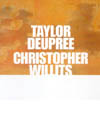 This collaboration began during a performance at Tonic in NYC celebrating the release of Willits' Folding, and the Tea,still one of my favorites on Deupree's 12k label. Willits' style ofguitar processing, a method he calls "folding," involves the digitalreassembling of plucked rhythms and melodies in a way that resists bothfragment pile-up techniques and a tired glitch aesthetic. Theaccurately "folded" results show evidence of computerized cuts, falsestops, and redirections, but each piece also retains the timbre andirregular sustain of the guitar itself, as if Willits' laptop were justanother pedal at his feet, each uncanny alteration arriving seamlessly,swift as the click of a heel. Folding would not be asimpressive, however, if the guitarist's playing were not sounderhandedly melancholic. Without the rolling minor chords of someonelike Fennesz, Willits brings emotion to his music in a more subtle way,producing fragile, staggered tonal clusters, taking on weight only asthey are creased and misaligned during the "folding" process. The "tea"to which his debut's title refers is clearly not the skyward,psychedelic brew filling fellow lap-tarist Joseph Suchy's glass, butmore like a strong herbal black, the kind meant to accompany sittingand staring into surfaces. Taylor Deupree's earthbound approach tomicro-tonal sound arrangement is a perfect match for the concentrated,tactile element of Willits' work. Fostered by the growth of his 12kimprint, Deupree's now-mature style has developed around a minimalistdissection of sound, a mapping of sound particles in a way that, likeWillits', avoids an obsession with glitch-ist process, ordeconstruction per se. Instead, Deupree, along with the expanding 12kroster, favors a highly suggestive magnification of sound events thatfeels wholly related to human gesture and the surrounding world, fullof miniature drama and plaintive tug. Most of the music on Audiosphere 08comes from live sessions where Deupree uses Willits' guitar, run firstthrough the folding box, as source material for his microsoundinvestigations. The live setup creates a kind of circular dialogueresulting in some remarkably focused compositions. Up close, theproduct of the collaboration is predictable: the dominance of Willits'guitar gives the tunes a buoyancy and a more present melodic portionthan Deupree is used to, and the latter's position in the backgroundsituates the guitar's colorful folds in a crisp stew of tiny sounds,ranging from the static skips and jumps more typical of Deupree's solooutput to assertive drones, pulsing as if stripped from the core of aplucked string. At greater remove, isolating each musician'scontribution becomes not only impossible, but a easily forgotteninterference in the enjoyment of these tracks, so much so that the twosolo live tracks also included make for an interesting look at just howmuch one of these guys brings to the table. As a release, Audioshere 08holds up surprisingly well among the intimidating previous output ofits contributors, and as a collaboration, this music is a stunningachievement, a beautiful rounded sound that leaves me hoping this duowill record again.
This collaboration began during a performance at Tonic in NYC celebrating the release of Willits' Folding, and the Tea,still one of my favorites on Deupree's 12k label. Willits' style ofguitar processing, a method he calls "folding," involves the digitalreassembling of plucked rhythms and melodies in a way that resists bothfragment pile-up techniques and a tired glitch aesthetic. Theaccurately "folded" results show evidence of computerized cuts, falsestops, and redirections, but each piece also retains the timbre andirregular sustain of the guitar itself, as if Willits' laptop were justanother pedal at his feet, each uncanny alteration arriving seamlessly,swift as the click of a heel. Folding would not be asimpressive, however, if the guitarist's playing were not sounderhandedly melancholic. Without the rolling minor chords of someonelike Fennesz, Willits brings emotion to his music in a more subtle way,producing fragile, staggered tonal clusters, taking on weight only asthey are creased and misaligned during the "folding" process. The "tea"to which his debut's title refers is clearly not the skyward,psychedelic brew filling fellow lap-tarist Joseph Suchy's glass, butmore like a strong herbal black, the kind meant to accompany sittingand staring into surfaces. Taylor Deupree's earthbound approach tomicro-tonal sound arrangement is a perfect match for the concentrated,tactile element of Willits' work. Fostered by the growth of his 12kimprint, Deupree's now-mature style has developed around a minimalistdissection of sound, a mapping of sound particles in a way that, likeWillits', avoids an obsession with glitch-ist process, ordeconstruction per se. Instead, Deupree, along with the expanding 12kroster, favors a highly suggestive magnification of sound events thatfeels wholly related to human gesture and the surrounding world, fullof miniature drama and plaintive tug. Most of the music on Audiosphere 08comes from live sessions where Deupree uses Willits' guitar, run firstthrough the folding box, as source material for his microsoundinvestigations. The live setup creates a kind of circular dialogueresulting in some remarkably focused compositions. Up close, theproduct of the collaboration is predictable: the dominance of Willits'guitar gives the tunes a buoyancy and a more present melodic portionthan Deupree is used to, and the latter's position in the backgroundsituates the guitar's colorful folds in a crisp stew of tiny sounds,ranging from the static skips and jumps more typical of Deupree's solooutput to assertive drones, pulsing as if stripped from the core of aplucked string. At greater remove, isolating each musician'scontribution becomes not only impossible, but a easily forgotteninterference in the enjoyment of these tracks, so much so that the twosolo live tracks also included make for an interesting look at just howmuch one of these guys brings to the table. As a release, Audioshere 08holds up surprisingly well among the intimidating previous output ofits contributors, and as a collaboration, this music is a stunningachievement, a beautiful rounded sound that leaves me hoping this duowill record again.samples:
Read More
- Administrator
- Albums and Singles
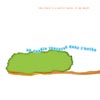 Dekorder is a new label/distributor based in Hamburg and founded by thesame people behind the now-defunct Disco Bruit imprint. Kicking offwith an impressive group of 3" discs and 10" records, the label seemsto pick up where Bruit left off, furthering its juxtaposition of thebubbly, cut-and-paste electronica dominating labels like Sonig anddarker digital landscaping characteristic of groups like Jazzkammer andnew Hafler Trio. Dekorder's first release comes from Barcelona-basedmulti-instrumentalist Un Caddie Renvers? Dans l'Herbe who has justreleased a full-length CD on the label, breaking up their 3"/10"streak. If this mini-disc is any indication of the sound of his newermaterial, I can comfortably recommend hunting it down. The music flowsfrom an impressive range of sources, including a number of Sub-Saharaninstruments, cello and guitar, all fed through software to createsparse but effective compositions that develop in a deceptive,half-improvised manner sometimes reminiscent of the work of Sack &Blumm. The sound of the Mbira (thumb-piano) dominates much of thedisc's 20 minutes, cut into elaborate chiming patterns, never gaudy,and invaluable to the continental vibe drifting off most everything.The laptop thankfully sticks to the background of Weird Taste,performing cutting and looping functions almost exclusively, lettingthe soul of the instruments and Un Caddie's breezy playing do most ofthe talking. Even at their most repetitive, the artist's piano andguitar figures maintain a hypnotic, truly cinematic bent thatimmediately separates the music from the majority of small-formatlaptop productions. Un Caddie has many more releases, including severalthrough his own Ooze.Bap label and the newer Dekorder release Like A Packed Cupboard But Quite?, making this 3" the perfect introduction to a refreshing new face that will undoubtedly provide for future discoveries.
Dekorder is a new label/distributor based in Hamburg and founded by thesame people behind the now-defunct Disco Bruit imprint. Kicking offwith an impressive group of 3" discs and 10" records, the label seemsto pick up where Bruit left off, furthering its juxtaposition of thebubbly, cut-and-paste electronica dominating labels like Sonig anddarker digital landscaping characteristic of groups like Jazzkammer andnew Hafler Trio. Dekorder's first release comes from Barcelona-basedmulti-instrumentalist Un Caddie Renvers? Dans l'Herbe who has justreleased a full-length CD on the label, breaking up their 3"/10"streak. If this mini-disc is any indication of the sound of his newermaterial, I can comfortably recommend hunting it down. The music flowsfrom an impressive range of sources, including a number of Sub-Saharaninstruments, cello and guitar, all fed through software to createsparse but effective compositions that develop in a deceptive,half-improvised manner sometimes reminiscent of the work of Sack &Blumm. The sound of the Mbira (thumb-piano) dominates much of thedisc's 20 minutes, cut into elaborate chiming patterns, never gaudy,and invaluable to the continental vibe drifting off most everything.The laptop thankfully sticks to the background of Weird Taste,performing cutting and looping functions almost exclusively, lettingthe soul of the instruments and Un Caddie's breezy playing do most ofthe talking. Even at their most repetitive, the artist's piano andguitar figures maintain a hypnotic, truly cinematic bent thatimmediately separates the music from the majority of small-formatlaptop productions. Un Caddie has many more releases, including severalthrough his own Ooze.Bap label and the newer Dekorder release Like A Packed Cupboard But Quite?, making this 3" the perfect introduction to a refreshing new face that will undoubtedly provide for future discoveries. samples:
Read More
- Administrator
- Albums and Singles
 Esmerine are being called a gy!be off-shoot as the core members — BruceCawdron and Beckie Foon #151; have played on various releases relatedto the Montreal collective. At the same time that the label gets them acertain amount of attention, I think it belittles the power of theirmusic at the same time, as this is not just a plaything to occupy sometime while the members wait for a new gy!be or Silver Mt. Zion record.Through very simple means, Esmerine have concocted one of the mostmoving records I've heard, mostly using simple percussion and cellowith some guest musicians to round out some of the compositions. First,there is beauty in the music itself, as the cello has the ability toextract tears from even the staunchest individual. Next, the perussionis mostly marimba or light drumming, which keeps a nice pace, but alsocuts the more overbearing moments of the strings with a slightlylighter tone. Mostly, though, the compositions themselves arebreathtaking, with moments of pure heartrending glory. There aremoments of bombast that hint at some heavy firepower, but Esmerinemostly lock it away; like offering a glance at the weapon, knowingthere's a larger psychological impact than brandishing it every fiveminutes. "Red Fire Alarm" starts off quiet, then builds to a boisteroustete-a-tete between all instruments. Eventually, the song lies down fora nap, slowly fading off into a deep sleep. The epic journey of thesecond track may turn some off, but the interplay of the strings withthe very quiet drone behind them is quite stirring. Elsewhere, there isthe lighter feel of "Tungsten" and the experimentation of "Luna Park"and "The Marvellous Engines of Resistance" to offer a smattering ofstyles with equally pleasing results. As the album finally nears itsend, the true demons finally come out, and it's worth every measure. Asound debut, and much more than some of the buzz words make it out tobe.
Esmerine are being called a gy!be off-shoot as the core members — BruceCawdron and Beckie Foon #151; have played on various releases relatedto the Montreal collective. At the same time that the label gets them acertain amount of attention, I think it belittles the power of theirmusic at the same time, as this is not just a plaything to occupy sometime while the members wait for a new gy!be or Silver Mt. Zion record.Through very simple means, Esmerine have concocted one of the mostmoving records I've heard, mostly using simple percussion and cellowith some guest musicians to round out some of the compositions. First,there is beauty in the music itself, as the cello has the ability toextract tears from even the staunchest individual. Next, the perussionis mostly marimba or light drumming, which keeps a nice pace, but alsocuts the more overbearing moments of the strings with a slightlylighter tone. Mostly, though, the compositions themselves arebreathtaking, with moments of pure heartrending glory. There aremoments of bombast that hint at some heavy firepower, but Esmerinemostly lock it away; like offering a glance at the weapon, knowingthere's a larger psychological impact than brandishing it every fiveminutes. "Red Fire Alarm" starts off quiet, then builds to a boisteroustete-a-tete between all instruments. Eventually, the song lies down fora nap, slowly fading off into a deep sleep. The epic journey of thesecond track may turn some off, but the interplay of the strings withthe very quiet drone behind them is quite stirring. Elsewhere, there isthe lighter feel of "Tungsten" and the experimentation of "Luna Park"and "The Marvellous Engines of Resistance" to offer a smattering ofstyles with equally pleasing results. As the album finally nears itsend, the true demons finally come out, and it's worth every measure. Asound debut, and much more than some of the buzz words make it out tobe. samples:
Read More
- Michael Patrick Brady
- Albums and Singles
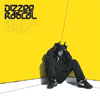 Finally, after a year and a half, the mercury prize for album of theyear, a stabbing, and endless amounts of hype-slipping across theAtlantic Ocean about a true slice of the U.K. Garage scene (unlike theamusing, but hardly definitive Original Pirate Material)landing stateside and demolishing the anemic backpacker underground,Dizzee Rascal has arrived. While it's difficult to say that anythinglavished with so much unyielding praise could ever live it down, Boy in Da Cornerdoes quite a bit to support it. It is a brilliant collection of bangersthat can be at times furious and frothing, and other times insightfuland contemplative. Rascal doesn't' fall prey to the run of the mill hiphop clich?, giving issues like violence and sexuality their due with amore sensitive eye than most. When others fall prey toself-contradiction and self-involvement, Dizzee finds a consistency andbalance, a sense of control-not bottled or volatile but reigned in,precise and deftly employed. His tracks are punctuated with off kilter,upside down beats that sound like they're coming from water damageddrum machines and synthesizers. They fall on top of each other in afilthy collision of thin, piercing claps of metallic shards and wobblynotes with a thick and heavy low end. The thick East London accent thatdominates his delivery decimates the sleepy flow of mainstream rapperslike 18 Cent as well as the squeaky bleats of American undergroundcounterparts like Aesop Rock. Rascal doesn't cop out and slack on hisbeats for the sake of his lyrics or mumble his way through his tracksto show off his production. His voice is ingrained in the music, asaggressive an instrument as the concussive pipe bomb percussion thatpropels him. "Stop Dat" is a knives-out assault, spitting lyrics acrossan adrenaline-fueled crush of ominous clashes and crunches. Everyslit-eyed glance and sized up plot comes across in his venomous accent."I Luv U" pairs Dizzee with the clearly annoyed vocals of JeanneJacques, trading chorus lines Positive K style over throbbing IDMbeats, and shows that Mike Skinner wasn't exactly telling the truthwhen he said "round 'ere we call 'em birds / not bitches." Along with"Jezebel," this track explores the male female interaction with askeptical and critical eye, lampooning careless sex andirresponsibility while bemoaning the devastating (and cyclical) resultsof teenage promiscuity. "Do It" is a sincere, contemplative piece whereDizzee reveals himself, going deeply into personal insecurity, fearsand doubts and closing with the decidedly upbeat notion that "you cando anything." Boy in the Corner is a devastating salvo thatwill leave Rascal's contemporaries (particularly those in the UnitedStates) shell shocked and dazed. This record will sit at the head ofthe pack and give everyone a target to aim for, whether it is toemulate it's successful formula or kill it with something even moreforward looking and fresh. Hopefully his example will provoke otherhip-hop, rap, garage, grime innovators to come forth and show whatthey've got, and serve as a warning to all those who are alreadystagnant that it's time to fix up and look sharp.
Finally, after a year and a half, the mercury prize for album of theyear, a stabbing, and endless amounts of hype-slipping across theAtlantic Ocean about a true slice of the U.K. Garage scene (unlike theamusing, but hardly definitive Original Pirate Material)landing stateside and demolishing the anemic backpacker underground,Dizzee Rascal has arrived. While it's difficult to say that anythinglavished with so much unyielding praise could ever live it down, Boy in Da Cornerdoes quite a bit to support it. It is a brilliant collection of bangersthat can be at times furious and frothing, and other times insightfuland contemplative. Rascal doesn't' fall prey to the run of the mill hiphop clich?, giving issues like violence and sexuality their due with amore sensitive eye than most. When others fall prey toself-contradiction and self-involvement, Dizzee finds a consistency andbalance, a sense of control-not bottled or volatile but reigned in,precise and deftly employed. His tracks are punctuated with off kilter,upside down beats that sound like they're coming from water damageddrum machines and synthesizers. They fall on top of each other in afilthy collision of thin, piercing claps of metallic shards and wobblynotes with a thick and heavy low end. The thick East London accent thatdominates his delivery decimates the sleepy flow of mainstream rapperslike 18 Cent as well as the squeaky bleats of American undergroundcounterparts like Aesop Rock. Rascal doesn't cop out and slack on hisbeats for the sake of his lyrics or mumble his way through his tracksto show off his production. His voice is ingrained in the music, asaggressive an instrument as the concussive pipe bomb percussion thatpropels him. "Stop Dat" is a knives-out assault, spitting lyrics acrossan adrenaline-fueled crush of ominous clashes and crunches. Everyslit-eyed glance and sized up plot comes across in his venomous accent."I Luv U" pairs Dizzee with the clearly annoyed vocals of JeanneJacques, trading chorus lines Positive K style over throbbing IDMbeats, and shows that Mike Skinner wasn't exactly telling the truthwhen he said "round 'ere we call 'em birds / not bitches." Along with"Jezebel," this track explores the male female interaction with askeptical and critical eye, lampooning careless sex andirresponsibility while bemoaning the devastating (and cyclical) resultsof teenage promiscuity. "Do It" is a sincere, contemplative piece whereDizzee reveals himself, going deeply into personal insecurity, fearsand doubts and closing with the decidedly upbeat notion that "you cando anything." Boy in the Corner is a devastating salvo thatwill leave Rascal's contemporaries (particularly those in the UnitedStates) shell shocked and dazed. This record will sit at the head ofthe pack and give everyone a target to aim for, whether it is toemulate it's successful formula or kill it with something even moreforward looking and fresh. Hopefully his example will provoke otherhip-hop, rap, garage, grime innovators to come forth and show whatthey've got, and serve as a warning to all those who are alreadystagnant that it's time to fix up and look sharp. samples:
Read More
- Administrator
- Albums and Singles
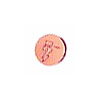 Yeah is one of two new platters of tasty wax from DFA Records, certainly the most name-checked label since anyone gave a shit about Warp Records. James Murphy's LCD Soundsystem hasn't released a new 12" single since 2002's "Losing My Edge," even though private edition tracks like "Tribulations" and "Where Is Love?" have been popping up on file-sharing services over the past year. Rather than officially releasing one of the aforementioned tracks, Murphy's Soundsystem has crafted a new track aimed straight at clubs: a massive, obnoxious punk-disco meltdown destined to be the set-closing favorite of DJs everywhere in coming months.
Yeah is one of two new platters of tasty wax from DFA Records, certainly the most name-checked label since anyone gave a shit about Warp Records. James Murphy's LCD Soundsystem hasn't released a new 12" single since 2002's "Losing My Edge," even though private edition tracks like "Tribulations" and "Where Is Love?" have been popping up on file-sharing services over the past year. Rather than officially releasing one of the aforementioned tracks, Murphy's Soundsystem has crafted a new track aimed straight at clubs: a massive, obnoxious punk-disco meltdown destined to be the set-closing favorite of DJs everywhere in coming months.
The song is irresistibly epic, beginning in familiar snotty dance-punk territory and gradually transforming into a jagged, overamped slab of retro acid mayhem. The appropriately titled Side A is called "Yeah (Stupid Version)," which begins with cookie-cutter disco basslines and snares, with Murphy et. al. intoning the irritating, repetitive lyrics over and over. Gradually, the track builds momentum and slowly replaces its organic elements with acid-house artillery. By the end, the pupil-dilating synths and ricochet rhythms are riding roughshod over the blissed-out dancefloor. Side B contains the "Pretentious Mix," which transorms "Yeah" into a sophisticated excursion into urbane, metropolitan electro-disco, not miles away from Metro Area's R&B-inflected lounge music. I liked this one a lot, and it makes me wonder if LCD Soundsystem might be able to pull a full-length LP out of their collective ass at some future point. 
Read More
- Administrator
- Albums and Singles
DFA's other 12" release comes in the form of a double-sided vinyl from Delia L. Gonzalez and Gavin R. Russom. "El Monte" is one of the most convincing evocations of the synthesizer throb of Kraftwerk and Tangerine Dream I've ever heard. Plenty of artists aim for this—Anthony Rother, Pete Namlook and the entire FAX label roster come to mind—but few ever come close the intrigue and majesty that Gonzalez and Russom accomplish with this 15-minute mindbender. Hearing it, I immediately contacted my local planetarium to arrange a cosmic laser-light show synchronized to El Monte's dark electro-progressive pulses. They hung up on me, but that doesn't change my feelings about this track. Beginning in a rainstorm and ending in a dark alien jungle landscape, Gonzalez and Russom's dark, propulsive synths swoop and rotate, gathering momentum in the same way as Tangerine Dream's classic "Circulation of Events." The DFA Remix of "Rise" cannot help but be something of a letdown after Side A, but Murphy and Goldsworthy manage to balance their dance-friendly instincts with Gonzales and Russom's retro-space arpeggiations, turning in a good approximation of The Orb circa "Blue Room."
samples
Read More


